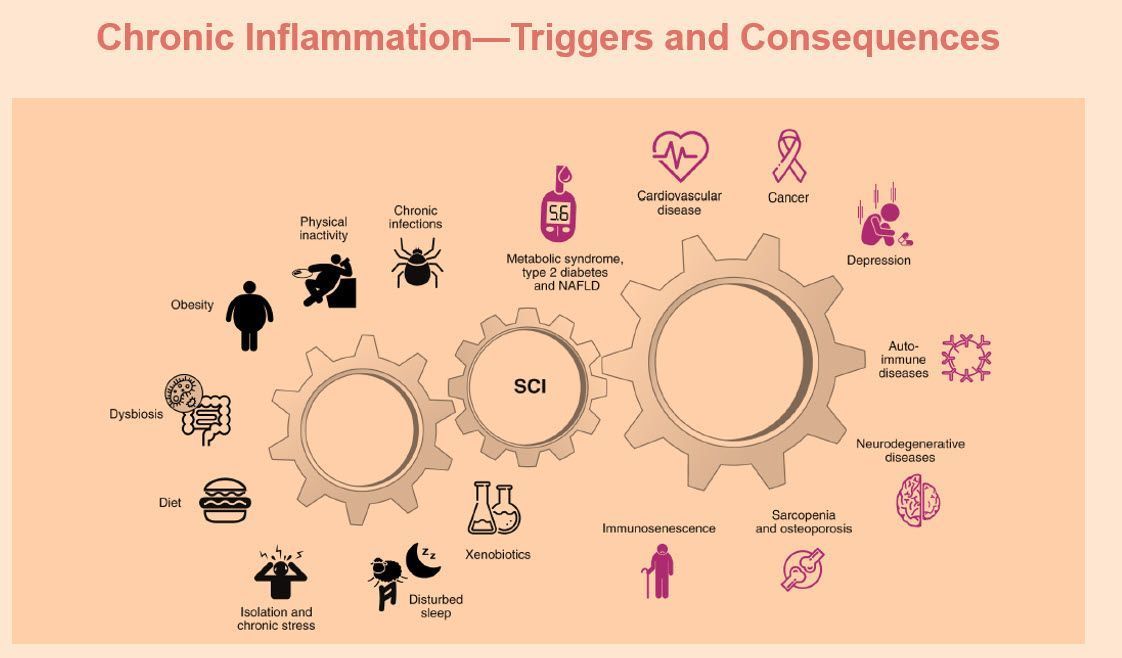NSAIDs increase heart attack and stroke risk
Advanced Back and Neck Care • May 23, 2024
FDA strengthens warning that NSAIDs increase heart attack and stroke risk
Back in 2005, the FDA warned that taking nonsteroidal anti-inflammatory drugs (NSAIDs) like ibuprofen and naproxen increased the risk of having a heart attack or stroke. In July 2015 the FDA took the unusual step of further strengthening this warning. This was done on the advice of an expert panel that reviewed additional information about NSAIDs and their risks. Because ibuprofen (Motrin, Advil) and naproxen (Aleve) are available over-the-counter and so widely used, it’s important to be aware of the ibuprofen warnings and naproxen warnings and to take steps to limit the risk.
Many people take NSAIDs to relieve mild to moderate pain. These medications may be particularly effective in conditions in which pain results primarily from inflammation, such as arthritis or athletic injury. While you can buy ibuprofen and naproxen on your own, doctors commonly write prescriptions for celecoxib (Celebrex), diclofenac (Cataflam, Voltaren) and other NSAIDs. Aspirin is also an NSAID, but it does not pose a risk of heart attack or stroke. In fact, aspirin is commonly used to prevent heart attacks and strokes. So, it is not covered by this warning.
NSAIDs may also elevate blood pressure and cause heart failure. The risk of heart attack and stroke achieved special notoriety with rofecoxib (Vioxx), a type of NSAID called a COX-2 inhibitor. It caused as many as 140,000 heart attacks in the U.S. during the five years it was on the market (Vioxx was removed from the market in 2004). The regrettable experience with Vioxx raised awareness about the cardiovascular risk of NSAIDs, and led to further studies showing that the risk is not limited to Vioxx but is associated with all NSAIDs.
The FDA has noted the following ibuprofen warnings and naproxen warnings along with similar risks of other NSAIDs:
- Heart attack and stroke risk increase even with short-term use, and the risk may begin within a few weeks of starting to take an NSAID.
- The risk increases with higher doses of NSAIDs taken for longer periods of time.
- The risk is greatest for people who already have heart disease, though even people without heart disease may be at risk.
Using NSAIDs safely
Taking an NSAID for a headache, or for a few days to ease a sore shoulder isn’t likely to cause a heart attack or stroke. It’s more prolonged use that can get risky.
In view of the warnings, it is best for people with heart disease to avoid NSAIDs if at all possible, and for everyone who is considering taking an NSAID to proceed with caution. Here are some strategies:
- It’s important to take the lowest effective dose, and limit the length of time you take the drug.
- Never take more than one type of NSAID at a time. There appears to be risk associated with all types of NSAIDs.
- Try alternatives to NSAIDs such as acetaminophen. It relieves pain but does not appear to increase heart attack or stroke risk. However, acetaminophen can cause liver damage if the daily limit of 4,000 milligrams is exceeded, or if you drink more than three alcoholic drinks every day.
- If nothing else works and you need to take an NSAID for arthritis or other chronic pain, try taking week-long “holidays” from them and taking acetaminophen instead.
- If you experience chest pain, shortness of breath, or sudden weakness or difficulty speaking while taking an NSAID, seek medical help immediately.
Assistant Professor of Medicine | Former Editor-in-Chief, Harvard Health Publishing
Cardiovascular disease (CVD) is the leading cause of death in the United States. For years, dietary cholesterol was implicated in increasing blood cholesterol levels leading to the elevated risk of CVD. To date, extensive research did not show evidence to support a role of dietary cholesterol in the development of CVD. As a result, the 2015–2020 Dietary Guidelines for Americans removed the recommendations of restricting dietary cholesterol to 300 mg/day. This review summarizes the current literature regarding dietary cholesterol intake ...
https://www.functionalmedicineuniversity.com/public/2017.cfm ** Feel free to use this article on your website. and have it linked back to www.FunctionalMedicineUniversity.com ** Read my past articles: http://www.functionalmedicineuniversity.com/public/department88.cfm ATTENTION DOCTORS AND ALL HEALTHCARE PRACTITIONERS Tell your friends and colleagues about Clinical Rounds . This is a great introduction to the field of functional medicine. Here is the webpage to subscribe: http://www.clinicalrounds.com Take care, Ron P.S. Please visit our facebook page and " Like It " Of course if you really like it. :) http://www.facebook.com/pages/Functional-Medicine-University/161486170671332
https://www.functionalmedicineuniversity.com/public/2012.cfm ** Feel free to use this article on your website. Compliments from Functional Medicine University. ** Read my past articles: http://www.functionalmedicineuniversity.com/public/department88.cfm View Rick Bramos Fitness YouTube Channel https://www.youtube.com/channel/UC_x4I27Z0DfYkfcroXxAhcA/videos Here is Rick's New Video of the Week: https://youtu.be/Pk9FeTKlufU Rick is now offering phone consultations for those wanting to lose weight or simply to improve their fitness. Rick can be reached at 2days2fitness@gmail.com for more details. ATTENTION DOCTORS AND ALL HEALTHCARE PRACTITIONERS Tell your friends and colleagues about Clinical Rounds . This is a great introduction to the field of functional medicine. Here is the webpage to subscribe: http://www.clinicalrounds.com Take care, R on P.S. Please visit our facebook page and " Like It " Of course if you really like it. :) http://www.facebook.com/pages/Functional-Medicine-University/161486170671332
https://www.functionalmedicineuniversity.com/public/2006.cfm ** Feel free to use this article on your website. All I ask is to add at the bottom of the article: Compliments from Functional Medicine University and have it linked back to www.FunctionalMedicineUniversity.com ** Read my past articles: http://www.functionalmedicineuniversity.com/public/department88.cfm ===================== View Rick Bramos Fitness YouTube Channel https://www.youtube.com/channel/UC_x4I27Z0DfYkfcroXxAhcA/videos Here is Rick's New Video of the Week: https://youtu.be/Pk9FeTKlufU Rick is now offering phone consultations for those wanting to lose weight or simply to improve their fitness. Rick can be reached at 2days2fitness@gmail.com for more details. ===================== ATTENTION DOCTORS AND ALL HEALTHCARE PRACTITIONERS Tell your friends and colleagues about Clinical Rounds. This is a great introduction to the field of functional medicine. Here is the webpage to subscribe: http://www.clinicalrounds.com Take care, Ron P.S. Please visit our facebook page and "Like It" Of course if you really like it. :) http://www.facebook.com/pages/Functional-Medicine-University/161486170671332
https://www.functionalmedicineuniversity.com/public/2000.cfm ** Feel free to use this article on your website. Compliments from Functional Medicine University. ** Read my past articles: http://www.functionalmedicineuniversity.com/public/department88.cfm ===================== View Rick Bramos Fitness YouTube Channel https://www.youtube.com/channel/UC_x4I27Z0DfYkfcroXxAhcA/videos Here is Rick's New Video of the Week: https://www.youtube.com/watch?v=W__EwtXJkyY Rick is now offering phone consultations for those wanting to lose weight or simply to improve their fitness. Rick can be reached at 2days2fitness@gmail.com for more details. ===================== ATTENTION DOCTORS AND ALL HEALTHCARE PRACTITIONERS Tell your friends and colleagues about Clinical Rounds. This is a great introduction to the field of functional medicine. Here is the webpage to subscribe: http://www.clinicalrounds.com Take care, Ron P.S. Please visit our facebook page and "Like It" Of course if you really like it. :) http://www.facebook.com/pages/Functional-Medicine-University/161486170671332
At the very least, you'll want to keep this to a minimum. Inflammation is often visible—think red skin or a swollen knee. However, inflammation can also occur on the inside, and it's not always so easy to detect. "Inflammation is a physiological process involved in the defense of our body and the repair of tissues," says Jenna Stangland, RD , a Momentous advisor. Stangland explains that inflammation can be triggered by infections, trauma, toxins or allergic reactions. Sometimes, it becomes chronic in the muscles and tissues. Unfortunately, Stangland says chronic inflammation carries risks. "Chronic inflammation can end up stimulating the development of cardiovascular diseases, autoimmune disease, neurological disease or cancer," Stangland says. "This type of inflammation can last several months as a result of inability to combat and reduce it." Diet isn't a cure-all for chronic inflammation or the diseases it can trigger. However, it's an important tool. "Diet plays a significant role in inflammation, as certain foods can either promote or reduce inflammation in the body," says Michelle Routhenstein, MS, RD, CDCES, CDN , a preventive cardiology dietitian at EntirelyNourished.com . One food in particular is worth avoiding. RDs shared the food to limit if you have chronic inflammation. Related: The One Diet That Will Actually Lower Your Heart Attack Risk, According to Cardiologists

What does the medical peer reviewed literature say may be at the root of the following diseases: Metabolic Syndrome/Insulin Resistance/Diabetes Cardiovascular Disease Cancer Obesity Depression Autoimmune Disease Neurodegenerative disease (Alzheimer's and Parkinson's disease) Osteoporosis Immunosenescence (the progressive decline in immune function with increasing age) The Answer is: INFLAMMATION
18 or 80 most anyone can do these. Remember create a habit first. Perform these exercises just twice a week.






